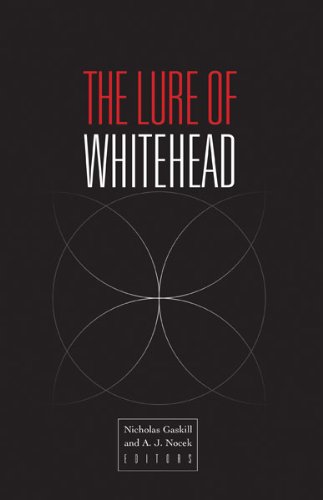A Peer-Reviewed Journal About, 8(1): Machine Feeling (2019)
Filed under journal | Tags: · aesthetics, affect, feeling, machine, machine learning, sensation, subjectivation, technology

“Digital culture has become instrumental for capturing and managing what Raymond Williams would once have called “structures of feeling”. The journal issue A Peer-Reviewed Journal About Machine Feeling alludes to this, and points to a material analysis of aesthetics and culture, including its technical and social forms, and in the way that this concept was originally employed as an acknowledgment of the importance of the hard to capture dimensions of everyday life. What potential new sensibilities and structures of feeling may arise in such normalized registers of our habits? What new cultural and social forms and practices emerge in the coming together of machine learning and structures of feeling? In each their own way, the authors in this journal explore these questions.”
Edited by Christian Ulrik Andersen and Geoff Cox
Publisher Digital Aesthetics Research Centre, Aarhus University, Aarhus, 15 August 2019
Creative Commons BY-NC-SA License
ISSN 2245-7755
219 pages
With contributions by Mitra Azar, Daniel Chávez Heras, Michela De Carlo, Iain Emsley, Malthe Stavning Erslev, Tomas Hollanek, Rosemary Lee, Carleigh Morgan, Carman Ng, Irina Raskin, Tiara Roxanne, Rebecca Uliasz, Maria Dada, Tanja Wiehn, and Brett Zehner.
Comment (0)Katrin Pahl: Tropes of Transport: Hegel and Emotion (2012)
Filed under book | Tags: · affect, emotion, feeling, love, phenomenology, philosophy

“Intervening in the multidisciplinary debate on emotion, Tropes of Transport offers a fresh analysis of Hegel’s work that becomes an important resource for Pahl’s cutting-edge theory of emotionality. If it is usually assumed that the sincerity of emotions and the force of affects depend on their immediacy, Pahl explores to what extent mediation—and therefore a certain degree of manipulation but also of sympathy—is constitutive of emotionality. Hegel serves as a particularly helpful interlocutor not only because he offers a sophisticated analysis of mediation, but also because, rather than locating emotion in the heart, he introduces impersonal tropes of transport, such as trembling, release, and shattering. ”
Publisher Northwestern University Press, 2012
Creative Commons BY-NC-ND 4.0
ISBN 0810127857, 9780810127852
ix+282 pages
Reviews: Emilia Angelova (Parrhesia, 2014), David H. Kim (Parrhesia, 2014), John McCumber (Parrhesia, 2014), Jason J. Howard (Parrhesia, 2014), Katrin Pahl (response to the 4 reviews, Parrhesia, 2014).
Interview with author (Rorotoko, 2012)
Comment (0)Nicholas Gaskill, A. J. Nocek (eds.): The Lure of Whitehead (2014)
Filed under book | Tags: · abstraction, bifurcation, consciousness, constructivism, creativity, difference, ecology, feeling, god, immanence, life, mereotopology, metaphysics, nature, ontology, perception, philosophy, posthuman, science, society, subject, temporality, time, vitalism

“Once largely ignored, the speculative philosophy of Alfred North Whitehead has assumed a new prominence in contemporary theory across the humanities and social sciences. Philosophers and artists, literary critics and social theorists, anthropologists and computer scientists have embraced Whitehead’s thought, extending it through inquiries into the nature of life, the problem of consciousness, and the ontology of objects, as well as into experiments in education and digital media.
The Lure of Whitehead offers readers not only a comprehensive introduction to Whitehead’s philosophy but also a demonstration of how his work advances our emerging understanding of life in the posthuman epoch.”
Contributors: Jeffrey A. Bell, Nathan Brown, Peter Canning, Didier Debaise, Roland Faber, Michael Halewood, Graham Harman, Bruno Latour, Erin Manning, Steven Meyer, Luciana Parisi, Keith Robinson, Isabelle Stengers, James Williams.
Publisher University of Minnesota Press, 2014
ISBN 9780816679959
ix+427 pages
Review: Ronny Desmet (Constructivist Foundations, 2015).
PDF (updated on 2021-3-9)
Comment (0)
